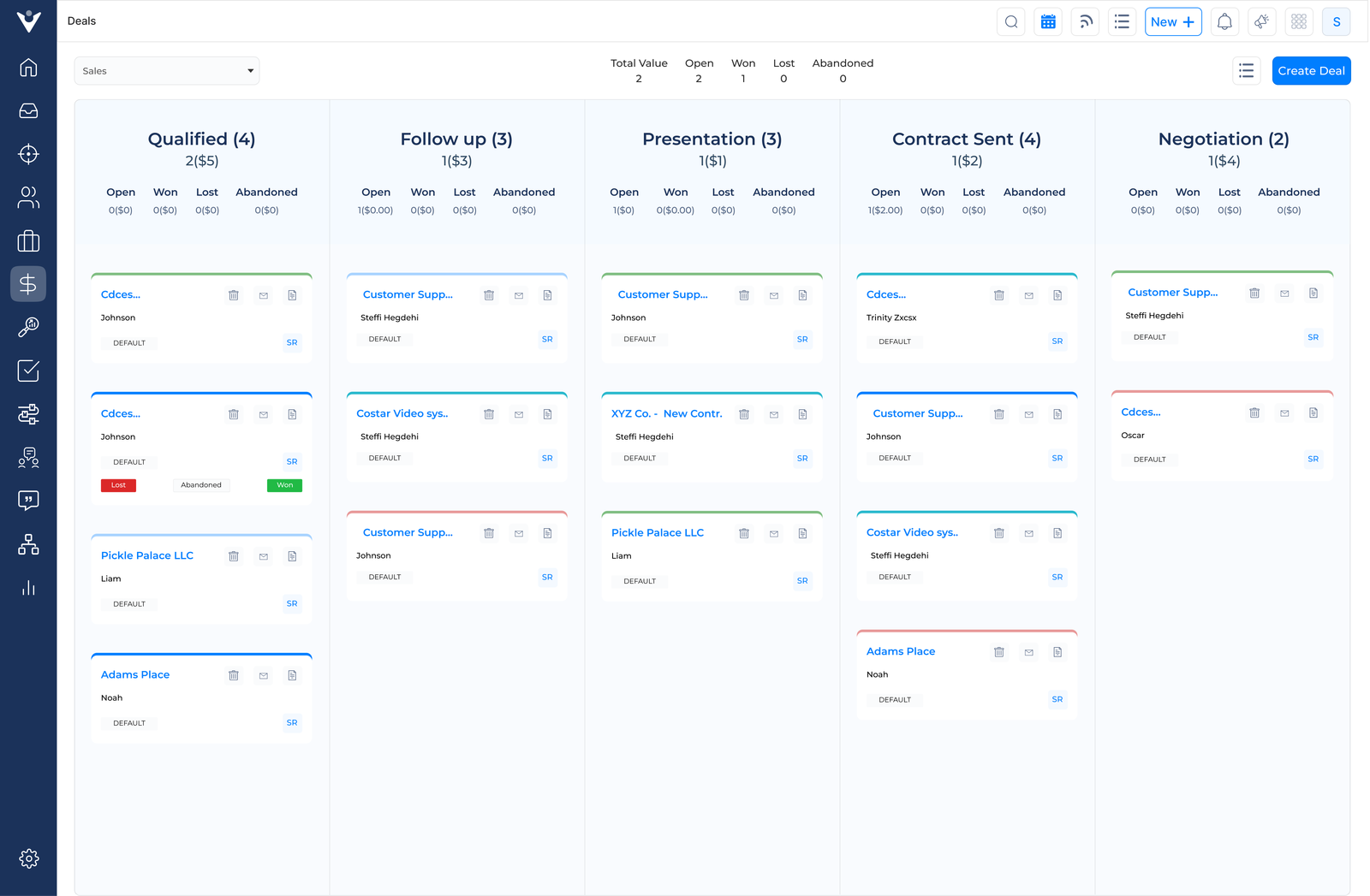1. Contact Management
A real estate CRM relies on strong contact management. The feature allows agents to organize client information, including personal details, property preferences and interaction history. Advanced systems offer tagging, segmentation and custom fields to categorize contacts effectively. The comprehensive view enables personalized communication and helps agents build lasting relationships with clients.
2. Multi-channel Lead Capture
Modern real estate CRMs integrate various lead sources, such as website forms, social media and third-party listing sites. The feature automatically captures and organizes leads from multiple channels, ensuring no potential client falls through the cracks. It often includes lead scoring capabilities to prioritize high-potential customers and streamline the follow-up process.
3. Automated Lead Nurturing
CRMs offer automated nurturing tools to convert leads into clients. The systems send personalized emails, text messages, or even direct mail based on predefined triggers or timelines. Automated nurturing keeps leads engaged throughout the lengthy real estate sales cycle by delivering relevant content and maintaining consistent communication.
4. Pipeline Management
Real estate transactions include multiple stages, from initial contact to closing. Pipeline management features provide a visual representation of deals in progress, allowing sales professionals to track each opportunity’s status and take timely actions. The bird’s-eye view helps prioritize efforts and forecast sales more accurately.
5. Email Automation
Email remains a crucial communication channel in real estate. CRM email automation tools enable agents to schedule personalized email campaigns, drip sequences and follow-ups. The features often include templates, performance tracking and integration with popular email platforms for seamless workflow.
6. Quotes Management
Preparing and sending property quotes is streamlined with quote management features. Agents can quickly generate professional-looking quotes, incorporating property details, pricing and terms. Some CRM systems also offer e-signature capabilities for faster closure of deals.
7. Workflow Automation
CRMs provide workflow automation tools to boost efficiency. Agents can set up rules-based actions, such as assigning tasks, updating deal stages, or sending notifications. Automating routine processes can help agents focus more on building relationships and closing deals.
8. Reporting & Analytics
Data-driven decision-making is crucial in real estate. CRMs offer comprehensive reporting features, providing insights into sales performance, lead sources and team productivity. Custom dashboards and exportable reports help brokers identify trends. They are also enabled to optimize strategies and measure ROI on a marketing team.
9. Meeting Scheduling
Coordinating property viewings and client meetings can be time-consuming. Meeting scheduling features in CRMs often integrate with calendar applications, allowing clients to book appointments based on the agent’s availability. The feature reduces back-and-forth communication and minimizes scheduling conflicts.
10. Sales Sequences
Sales sequences in real estate CRMs are a pre-planned series of touchpoints designed to nurture leads or guide clients through the buying/selling process. The sequences may include a mix of emails, calls and tasks, triggered automatically at specific intervals or based on client actions. The feature ensures consistent follow-up and helps maintain engagement throughout the sales cycle.
























